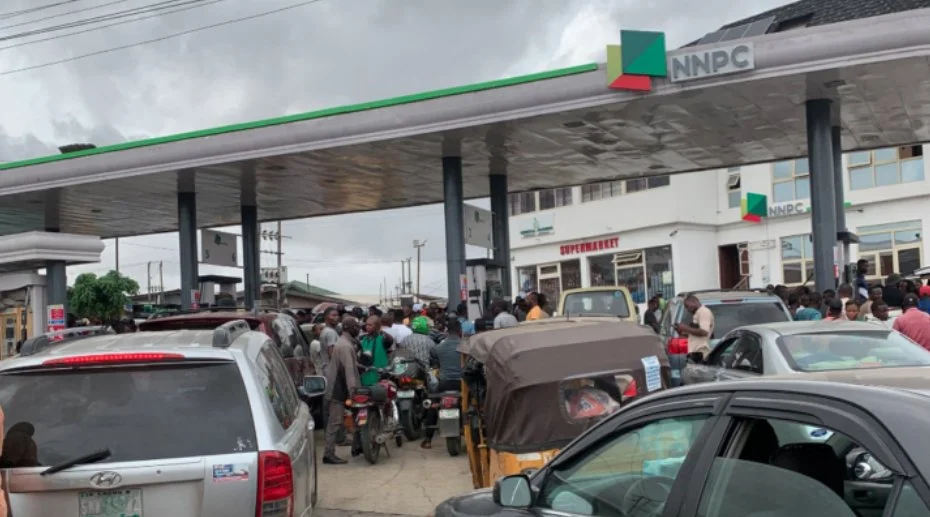The Nigerian National Petroleum Company (NNPC) Limited has increased the pump price of Premium Motor Spirit (PMS), commonly known as petrol, to N915 per litre in Lagos and N955 per litre in Abuja, effective August 4, 2025.
In recent times, this marks a N50 hike in Lagos from the previous N865 per litre and a N65 increase in Abuja from N890 per litre. The price adjustments were observed at NNPC retail outlets, including Abule Ado and Ago Palace Way in Lagos, and the Kubwa Expressway in Abuja.
Regional Price Variations
The National Bureau of Statistics (NBS) reported on July 31, 2025, that Jigawa, Ondo, and Lagos faced the highest petrol prices in June, while Yobe, Kogi, and Imo saw slightly lower rates, ranging from N950 to N987 per litre.
Despite these variations, fuel costs remain a significant burden for Nigerians, exacerbating the cost-of-living crisis. The unannounced hike has raised concerns about its impact on transport fares, food prices, and overall living expenses across the country.
Context of Price Fluctuations
This price increase follows a period of volatility in Nigeria’s fuel market. In March 2025, NNPC reduced prices to N860 per litre in Lagos to align with Dangote Refinery’s rates, driven by competition and the naira-for-crude policy.
However, rising global oil prices and exchange rate challenges prompted the latest hike. The Dangote Refinery, a key player, recently stopped selling petrol in naira, contributing to the upward price adjustment. Industry experts note that Nigeria’s reliance on local refining and market dynamics continues to shape pricing.
Economic and Social Impacts
The price hike adds financial strain to households, with ripple effects expected to drive up transportation and commodity prices.
Posts on X reflect public frustration, with users highlighting the lack of relief in fuel, food, and energy costs despite government policies.
The absence of an official NNPC announcement has fueled speculation of strategic pricing to offset operational costs, further eroding public trust in fuel pricing mechanisms.
What Lies Ahead
As Nigeria navigates a deregulated fuel market, the competition between NNPC and Dangote Refinery remains a focal point.
Stakeholders hope increased local refining capacity will eventually stabilize prices, but for now, Nigerians brace for the economic fallout of the latest hike.
With no immediate relief in sight, calls for transparent pricing and economic reforms grow louder, as citizens demand solutions to ease the burden of rising costs.
Dangote Refinery Drops Lawsuit Against Nigerian Fuel Import Licenses




















